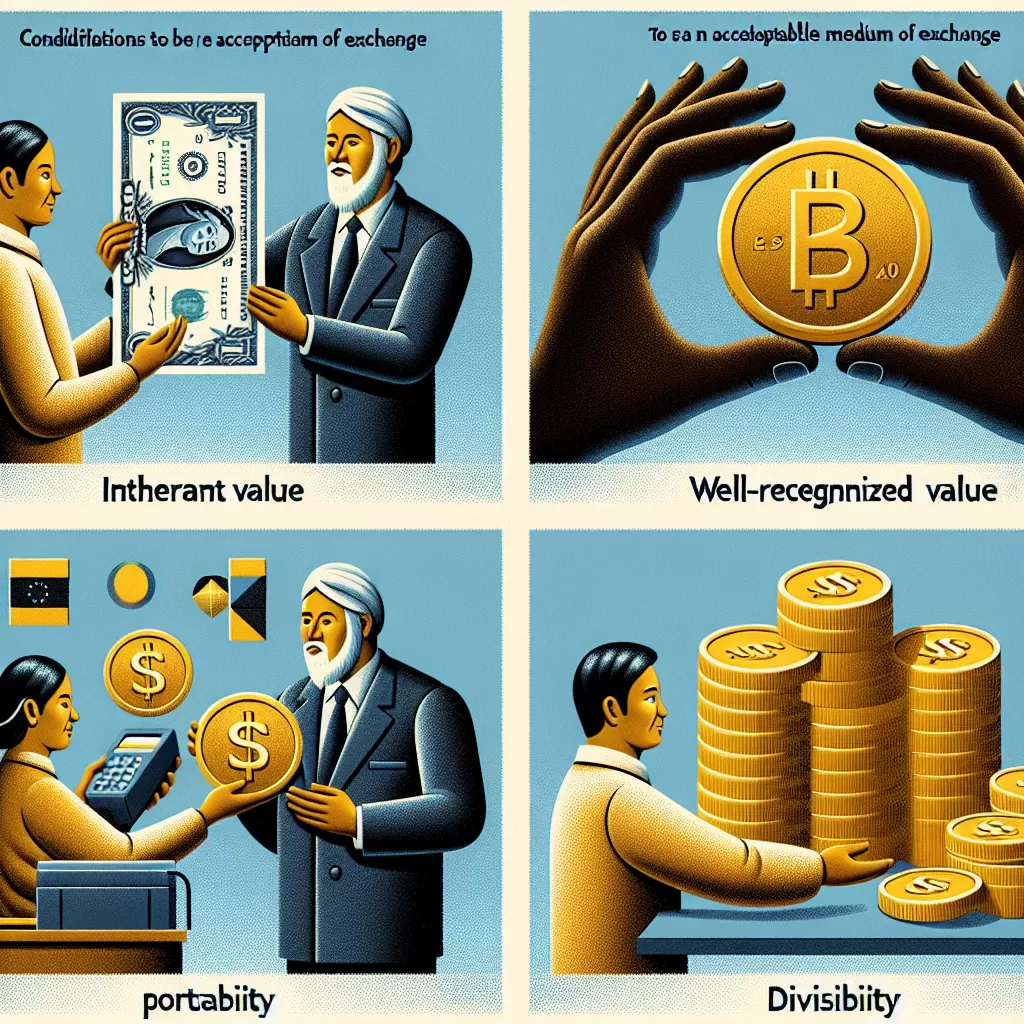For Money To Be An Acceptable Medium Of Exchange Which Of The Following Are Necessary?
Follow Currency Mart April 10, 2024
Where to purchase Foreign Currencies?

For Money to be an Acceptable Medium of Exchange: Necessary Conditions
General Acceptability
No matter where it is used, money is a generally accepted medium of exchange for goods and services which elevates it beyond the realms of bartering. For a currency to be active, it must be commonly embraced by individuals and businesses within a recognized territory. This can range from a localized community to a national or even global range. The Canadian dollar, for instance, is embraced throughout the country as the primary medium for transactions. The universal acceptance ensures smooth trading activities and eliminates the need for complex barter exchanges.Stability
For a medium of exchange to remain relevant, it must maintain a certain level of predictability and stability. This is necessary to sustain confidence in the economic climate. If the value of money were to fluctuate excessively—either through hyperinflation or deflation—confidence in its role as a viable medium decreases. The Central Bank of a country plays a vital role in safeguarding the stability of its currency. The Bank of Canada, for example, uses monetary policy tools such as key interest rates to stabilize the Canadian dollar.Portability
Any accepted medium of exchange must be easily portable. This means it should be practicable to transport it over distances, allowing it to facilitate exchanges and transactions. With today's technological advancements, this goes beyond physical portability. For instance, digital currencies fit the portability description, as they can be easily sent and received across global networks.Durability
The durability of a currency is fundamental for it to function effectively as a medium of exchange. Gold, for example, has historically been used as money because it does not corrode or decay over time. In the modern sphere, this definition has expanded to include a currency's resilience under economic pressures. Even when economies face a crisis, a robust medium of exchange retains its inherent value.Divisibility
A substantive medium of exchange needs to be divisible into smaller units without losing its core value. This divisibility paves the way for different scales of transactions, giving individuals and businesses the flexibility to buy and sell goods and services of varying values. For example, the Canadian dollar is divisible into 100 cents, facilitating a wide range of transactions.Security
Money must be secure and difficult to counterfeit for it to serve as a legitimate medium of exchange. Confidence in the currency system greatly depends on this security feature, especially in today's digital age where digital currencies need to be safeguarded from cyber threats. Therefore, detailed security measures are in place to protect established currencies, such as the Canadian dollar, from counterfeiting and fraud.Efficiency
Ultimately, money as a medium of exchange needs to make transactions efficient. It should lessen the time and resources required to achieve an exchange, reducing overall transaction costs. With the advent of online banking, e-transfers, and digital currencies, the efficiency of exchanges across different borders and time zones has been significantly enhanced. In conclusion, money as a viable medium of exchange is governed by several indispensable features. It must be widely accepted, stable, portable, durable, divisible, secure, and efficient. Only when these conditions are met can money successfully conduct its role as a facilitator of trade, commerce, and economic activity.
Where to purchase Foreign Currencies?